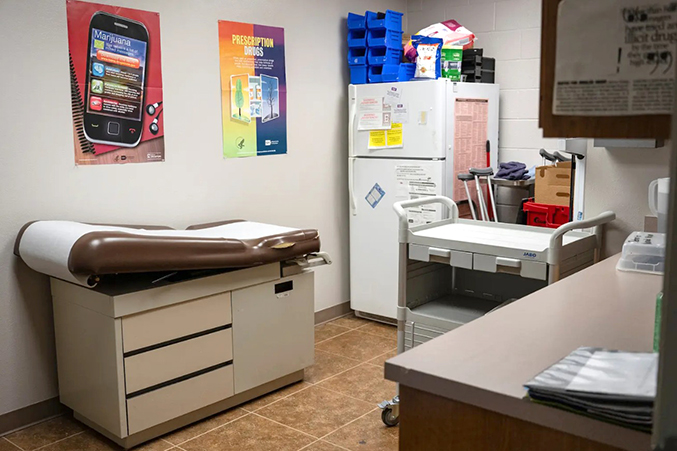1.7M Texans could lose health coverage under expiring tax credits, ACA changes
Published 10:37 pm Saturday, July 26, 2025
WASHINGTON — Up to 1.7 million Texans are expected to lose their health insurance through coming changes to the Affordable Care Act marketplace under Republicans’ tax and spending megabill, according to an analysis by health policy experts — a blow to a state health care system already strained by the highest uninsured rate in the nation.
Nearly 4 million Texans signed up for ACA health plans this year, a high-water mark in the marketplace’s 12-year history. But between the looming expiration of Biden-era enhanced premium tax credits — which lower out-of-pocket costs for people with marketplace coverage — and changes in the recently passed megabill, the state’s uninsured population is expected to spike.
The effects could reverberate across the health care landscape, with higher premiums, more financial strain on hospitals and destabilized insurance marketplaces, experts said.
Trending
Because Texas never expanded Medicaid to people earning above the federal poverty level — as 40 other states have done — the ACA marketplace has been an enormous driver of coverage, particularly among lower-income people. Texas’ uninsured rate fell from 23.7 percent in 2010 to 17.4 percent by 2023, with ACA enrollment contributing significantly.
Of the state’s nearly 4 million enrollees this year, close to 2.5 million earn between 100 and 150% of the federal poverty level, or $32,150 to $48,225 for a family of four. That means the ACA has helped fill the gap for people who would be eligible for Medicaid in expansion states, where adults who earn up to 138% of the federal poverty level are eligible.
The vast majority of Medicaid recipients in Texas are children. Low-income adults can only qualify if they or their child have a documented disability, are pregnant or over 65, or are a parent with a monthly income of less than $300 for a family of four.
The impending changes could represent the biggest source of coverage loss since the passage of the Affordable Care Act, said Cynthia Cox, director of the Program on the ACA at KFF, a nonprofit health policy organization that has projected the state-by-state effect of Trump’s megabill.
“I think back to the Great Recession, when a lot of people lost their jobs and thus lost their job-based health insurance coverage,” Cox said. “This is going to be more than that.”
Much of the attention around the Republican tax and spending bill has focused on cuts to Medicaid, especially the imposition of work requirements. But Texas is insulated from those changes owing to its status as a non-expansion state, and Medicaid coverage loss — while projected by KFF to be about 200,000 — is muted compared to other states.
Trending
The ACA is another story.
For one, the bill adds new layers of bureaucracy that make it harder to enroll in coverage through the marketplace, with an end to automatic renewal and more income documentation requirements. It also shortens the open enrollment period by one month and ends year-round enrollment for people earning under 150 percent of the federal poverty level in 2026. And it prevents certain lawfully present immigrants — including DACA recipients, asylees, people with Temporary Protected Status and refugees — from acquiring insurance through the ACA marketplace.
The changes will affect most Texans who receive marketplace coverage, 95% of whom claimed a sliding-scale premium subsidy — a monthly tax credit designed to make premiums more affordable based on income — in 2025. Over 1.4 million enrollees — or 36 percent — automatically renewed their plans, according to the Centers for Medicare and Medicaid.
Republicans say the changes will eliminate waste, fraud and abuse in the ACA marketplace and help reduce untenable federal spending levels. More frequent documentation and verification processes, they contend, will ensure that taxpayers are only funding health care costs for those who are truly eligible.
“Under the Trump Administration, we will no longer tolerate waste, fraud, and abuse at the expense of our most vulnerable citizens,” Health and Human Services Secretary Robert F. Kennedy Jr. said in a statement about ending duplicative enrollment in multiple federal health insurance programs. “With the passage of the One Big Beautiful Bill, we now have the tools to strengthen these vital programs for generations to come.”
But health care researchers argue the cumulative effect will worsen health outcomes.
“The whole bill is just designed to dismantle these health programs by getting people to disenroll in them, which then makes the entire system less functional,” said Lynn Cowles, the health and food justice director at Every Texan, a left-leaning think tank. “Because the risk level in each enrollment group is higher.”
KFF projects that ACA changes in the bill will lead to 560,000 Texans losing coverage.







